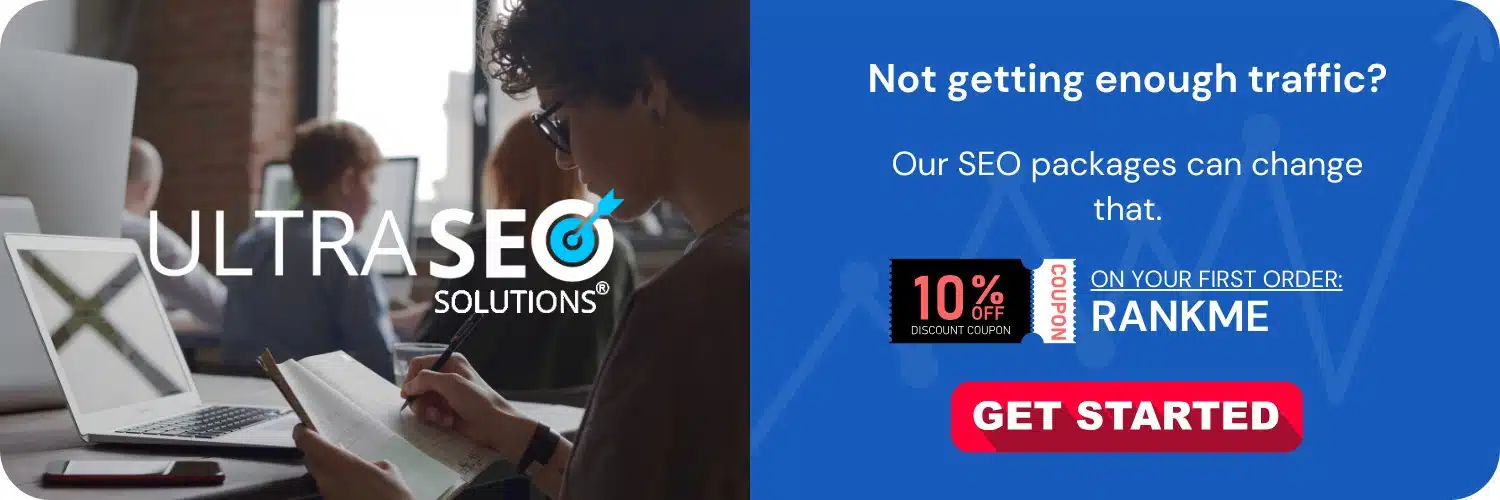
Podcasts have surged in popularity, offering a unique avenue for creators to reach their audience and for listeners to consume content on the go. But beyond entertainment and education, podcasts also hold significant value for Search Engine Optimization (SEO). They contribute to a brand’s content strategy, offering opportunities for keyword optimization, backlink generation, brand awareness, and audience engagement—all of which can positively influence a site’s SEO.
The Interplay Between Podcasts and SEO
Search engines aim to provide the most relevant and valuable content to their users. Podcasts add to the diversity of content types that fulfill this goal. When incorporated correctly into an SEO strategy, they can improve visibility and organic traffic.
Keyword Optimization and Content Strategy
Podcasting can be a distinct element of your content strategy, allowing you to target specific keywords relevant to your niche. Through episode titles, descriptions, and show notes, you can incorporate these keywords, making your content more discoverable not just on podcast platforms but also in search engine results. With Google starting to index podcast episodes directly in search results, the correct use of keywords can even get individual episodes ranked.
Backlink Generation and Partnership Opportunities
Podcasts naturally create opportunities for building backlinks, a crucial factor in SEO rankings. Guests on your podcast may link back to the episode from their websites, and listeners might share episodes across the web, generating organic backlinks. Partnering with other podcasters or featuring on their shows can also result in coveted backlinks and cross-promotion.
Enhancing Brand Awareness
A well-crafted podcast can significantly boost a brand’s visibility and authority within an industry. As you share valuable insights on topical matters, you establish your brand as an expert in the field. This increased brand awareness often translates to more search interest, which can indirectly boost SEO as more people search for your brand or website.
User Engagement and Dwell Time
Podcasts also have the potential to increase user engagement and ‘dwell time’—the length of time a visitor spends on your site. Podcast listeners tend to be highly engaged and may stick around to listen to an entire episode if embedded on your website. Longer dwell times can signal to search engines that your site provides valuable content, thereby enhancing your SEO performance.
Enhancing SEO Through Podcasts
To tap into the SEO potential of podcasts, it is crucial to follow strategic steps designed to integrate them seamlessly into your overall SEO plan.
Optimizing Podcast Content for Search
Creating transcriptions for your podcast episodes is a powerful way to make your audio content searchable online. Transcriptions can be crawled by search engine bots, ensuring that the rich content within your podcasts contributes to your site’s keyword relevance. Here’s how you can optimize further:
- Create detailed show notes that summarize each episode, target relevant keywords, and provide additional value to your listeners and search engines alike.
- Make sure your podcast metadata, including the title, description, and episode notes, is optimized with targeted keywords for better discoverability.
- Use images such as episode covers with optimized alt text to add further context for search engines.
Building a Podcast Page on Your Website
Rather than relying solely on podcast directories, host your podcast episodes on a dedicated page of your website. This central hub not only enhances user experience by making episodes easily accessible but also consolidates SEO benefits on your domain. To make the most out of this strategy:
- Ensure the page is well-designed, mobile-friendly, and provides an excellent user experience to encourage longer visits and engagement.
- Keep the podcast feed updated regularly to signal to search engines that your website has fresh content, a positive metric for SEO.
- Include calls to action that encourage visitors to engage with your content through comments or sharing on social media, thereby increasing reach and potential backlinks.
Repurposing Podcast Content
Leverage your podcast content across various mediums. Repurposing content not only stretches the value of your investment but also amplifies your SEO efforts.
- Create blog posts derived from your podcast topics, further elaborating on the subjects discussed and targeting additional keywords.
- Share snippets and quotes from your episodes on social media, driving traffic to your website and generating social signals which are valuable for SEO.
- Use segments from your podcast in video content, either by creating static image videos with audio or recording live episodes, and publish them on platforms like YouTube, which is also the second largest search engine.
Promoting Your Podcast
Promotion plays a key role in the SEO-impact of your podcasting efforts. Engage in strategic promotion to increase visibility:
- Submit your podcast to all major podcast directories to maximize your reach.
- Collaborate with other podcasters or influencers in your niche to tap into their audiences and drive listeners back to your site.
- Participate in podcast interviews on relevant topics to your industry, which can lead to high-quality backlinks and new audience discovery.
Measuring Podcast SEO Success
To understand the impact of your podcast on SEO, it’s vital to track relevant metrics:
- Analyze traffic to your podcast page and the behavior of visitors using tools like Google Analytics.
- Monitor rankings for keywords that you target with your podcast content to assess SEO improvements.
- Track the number of backlinks and their quality that your podcast has generated.
- Keep a close eye on brand searches and mentions across the web as an indicator of enhanced brand awareness.
Overcoming SEO Challenges With Podcasts
The audio nature of podcasts can present SEO challenges, as search engines traditionally crawl and index text more effectively than audio content. To mitigate these challenges:
- Produce high-quality, error-free transcriptions that add textual context to your audio content.
- Stay current with any advancements in audio indexing from search engines and adapt your strategy accordingly.
- Frequently update content and engage in best SEO practices across all digital assets related to your podcast.
- Encourage user reviews and ratings on podcast platforms, which can boost credibility and discoverability.
Finishing Thoughts
The role of podcasts in SEO is expansive and evolving. They provide a dynamic medium for businesses to enhance their online presence, engage users, and contribute to a robust SEO strategy. By leveraging the power of podcasts, brands can create rich, diverse content that appeals to both search engines and audiences. While there is a learning curve to maximizing the SEO benefits of podcasts, the rewards in terms of brand loyalty, authority, and organic search traffic are substantial for those who do so effectively.
Frequently Asked Questions
What is a Podcast?
A podcast is a digital audio or video file that is available on the internet for downloading or streaming. Podcasts are typically available as a series, where new episodes can be automatically downloaded to a user’s device via web syndication or pushed through notifications. Podcasts cover a broad range of topics and are often produced in a talk show or documentary-style format.
How Can Podcasts Improve SEO?
Podcasts can enhance SEO in several ways. Firstly, they can drive organic traffic to your website if your episodes are hosted there. Secondly, podcasts encourage content sharing and can generate backlinks if other websites refer to your podcast. Lastly, well-optimized show notes or transcriptions of your podcasts can contribute to improved keyword rankings and help your site’s visibility in search results.
Do Podcasts Affect Keyword Rankings?
Yes, podcasts can affect keyword rankings. By including relevant keywords in your episode titles, descriptions, and transcripts, you can optimize your podcast to rank for specific search terms. Additionally, mentioning targeted keywords naturally during your podcast episodes can also contribute to SEO if those episodes are transcribed and published on your website.
Is Podcast Transcription Beneficial for SEO?
Transcribing podcasts is beneficial for SEO as it creates text-based content that search engines can index. This not only makes your content accessible to more people, including those who are deaf or hard of hearing but also allows you to incorporate keywords that can boost your SEO efforts. Moreover, transcripts provide the opportunity to create additional relevant content, such as blog posts and social media updates.
Should Podcast Episodes Have Dedicated Web Pages?
Yes, hosting each podcast episode on a dedicated web page (often referred to as a ‘show notes’ page) can greatly benefit SEO. These pages provide a place to include episode transcripts, summaries, resources mentioned during the episode, and relevant links, all of which can be optimized for search engines. Additionally, dedicated pages make it easier for listeners to share and link back to specific episodes.
How Can Podcasts Generate Backlinks?
Podcasts can generate backlinks through guest appearances, where guests share the episode with their audience, resulting in links back to your website. Additionally, podcasts that provide valuable information or unique insights may be referenced by bloggers, journalists, or other media producers, leading to natural backlink opportunities.
What Role Do Podcast Platforms Play in SEO?
Podcast platforms play an indirect role in SEO. Whilst they don’t contribute directly to your website’s search engine ranking, they do increase the visibility of your podcast. Being present on multiple platforms such as Apple Podcasts, Spotify, or Google Podcasts allows more listeners to discover your content. When these listeners share your podcast and talk about it on social media or their own websites, this can lead to backlinks and increased traffic.
Can Podcasts Influence Domain Authority?
Podcasts can influence domain authority over time, as increased traffic to your site and the accumulation of quality backlinks can bolster your site’s reputation and credibility in the eyes of search engines. It’s important to note that domain authority is a metric developed by SEO software companies and not an actual ranking factor used by search engines like Google.
Are There Best Practices for Podcast SEO?
Several best practices for podcast SEO include: choosing descriptive, keyword-rich titles for episodes; writing detailed descriptions with keywords and phrases that potential listeners might search for; using tags and categories effectively; transcribing audio content; creating high-quality, relevant show notes; and building a network of backlinks by collaborating with other podcasters, industry influencers, and leveraging social media platforms.
How Should Podcasts Be Integrated into a Larger SEO Strategy?
Podcasts should be integrated into a larger SEO strategy by aligning podcast content with the keywords and topics that are relevant to your overall SEO goals. Promote your episodes across various channels to maximize reach and potential backlinks. Use podcast analytics to understand which topics resonate with your audience and then produce more content around those themes, both in your podcasts and in other formats such as blog posts or infographics.






